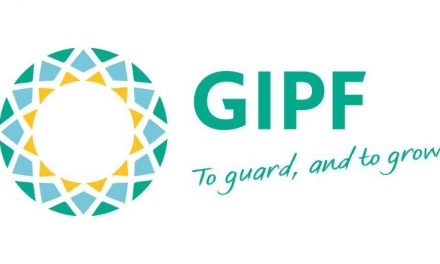
Good ideas need to be rewarded for innovation to work

By Rikus Grobler – In the previous two articles I discussed the phenomenon of disruptive innovation, the occurrence where industries are basically made obsolete through an innovation that creates a new market and value network, displacing an earlier technology.
As I always promulgate, innovation (including disruptive innovation) start with a novel idea, and by now you also know that I believe that people are inherently creative and have useful ideas. However, employees do not necessarily submit and implement the good ideas they have, sometimes they need a little “push”. How to give this “push” is not that straightforward, and one of the most heated debates involving innovation revolves around how to best incentivise people to develop and implement new ideas.
Incentivizing Innovation
Rewards in an innovation initiative should be easy, shouldn’t they? If someone has a good idea, give them a reward. Want to motivate people to participate in your suggestion scheme? Reward the submitters of the best ideas. Want great big ideas? Offer great big rewards! Unfortunately, like so many assumptions in innovation, all of the above are flawed at best and completely wrong at worst. In fact, rewarding innovation is a complex thing which, if you mess up, only makes matters worse.
True to form, let me first look at what research has revealed on this issue. In an insightful article on this topic, Ron Ashkenas found that the literature offers a wide range of conclusions. For example, one recent research report suggested that offering financial incentives only raised the number of mediocre ideas and had little impact on breakthrough innovation. On the other hand, an MIT study concluded that group incentives and long-term rewards do have a positive impact on innovation. And still another survey of 20 companies from different industries found that 90% of the respondents thought that incentivizing and rewarding innovation was “something we should be doing better.”
When thinking about incentives in a corporate context, monetary means usually comes to mind first. However, Ashkenas points out that creating financial incentives for innovation is not necessarily the silver bullet for motivating innovative behaviour. In fact, focusing too much on “cash for ideas” may open a Pandora’s Box of unintended consequences – people innovating for their own benefit instead of the company’s, competition arising between individuals, teams or units, employees losing focus on current business, and so on. This is not to say that there is no place for financial incentives for innovation, but it usually takes a lot of hard work to get them right.
So, after I have painted this dire picture for incentivizing innovation, the question becomes: How do you encourage employees to become more innovative, i.e. submit good ideas and execute them?
My answer to this is that you can’t reward innovation if you don’t have the systems in motion that encourage innovation to happen in the first place. What most organisations should focus on first is creating an environment, or a culture, that fosters innovation. Incentives is part of this bigger innovation “ecosystem” and just pushing incentives might get you one or two good ideas at first, but it will not be a sustainable means to innovation in the long run. Incentives is about rewarding the desired behaviours in an organisation and if employees do not know what these behaviours are, or how to integrate new behaviours with the current “business as usual” activities, incentives will do more harm than good.
Next Time
Incentivising innovation is a complex issue and it is different for every organisation. It is once again apparent that an organisation’s culture is the foundation for all the other issues related to innovation, so next time I will look at the link between organisational culture and incentives for innovation, and also share some ideas on how to encourage innovative behaviour through other means than monetary rewards. I conclude with a quote from Timothy Ferriss: “A goal without real consequences is wishful thinking. Good follow-through doesn’t depend on the right intentions. It depends on the right incentives”.
Sources:
Ashkenas, R. 2014. Even Good Employees Hoard Great Ideas. Harvard Business Review Blog Network. Online: http://blogs.hbr.org/2014/04/
About the author Rikus Grobler
After a career of over a decade in the manufacturing and IT industries, Rikus established a specialist business and management consulting firm (Namibia Innovation Solutions) in Windhoek in 2010. He has an MBA and also holds degrees in Engineering and Law. He is also a certified Project Management Institute (PMI) Project Management Professional (PMP) and he is currently pursuing a Ph D degree, on innovation. His passion is corporate innovation and he has consulted in this field for some of the major organisations in Namibia. You can e-mail him at [email protected] or visit his website at www.nis.com.na









































